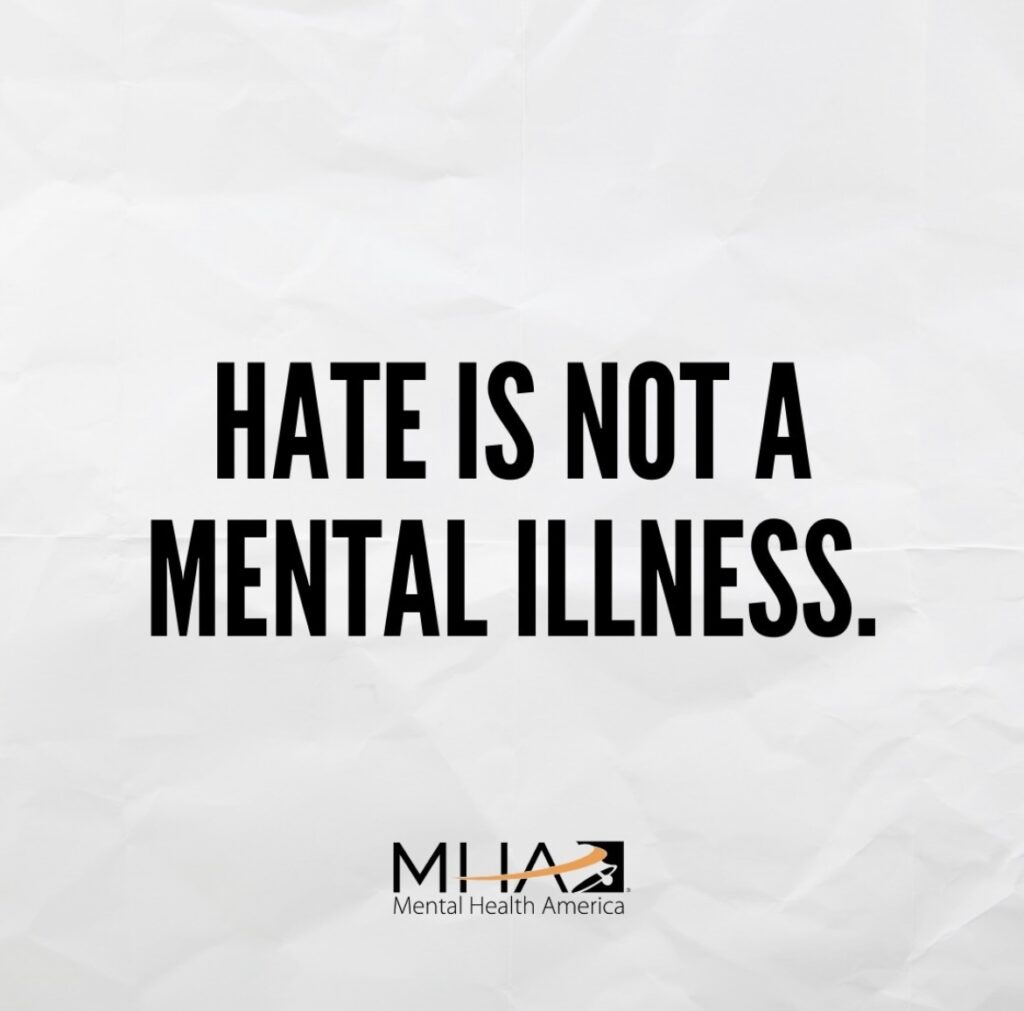According to the FBI as reported on by the NY Times, “About 64.9 percent of the 8,052 reported hate crime incidents [in 2020] were based on race, ethnicity or ancestry bias. The number of reported hate crimes against African Americans in 2020 was 2,871, up from 1,972 in 2019.”
The mass shooting on Saturday, May 14th in Buffalo, NY in a predominately black neighborhood was a planned and targeted event. This was activated racism designed to further the White supremacist agenda. The increase of hate crimes, especially towards the Black community, continue to rise, as does the trauma and ripple effects that starts with the victims, the victims’ loved ones and their community, and then emanates out to all of us.
 Hateful acts create trauma across a community and perpetuate more hate. If one of us is not free, none of us are free. How can a community move forward without being in a continued state of distress and fear if we allow active hate to be the norm?
Hateful acts create trauma across a community and perpetuate more hate. If one of us is not free, none of us are free. How can a community move forward without being in a continued state of distress and fear if we allow active hate to be the norm?
The ability for an individual to be mentally well requires many things. One essential ingredient, that is not talked about enough, is the value of taking a community approach to mental health.
At MHC, we see the power of living in a healthy environment and how that impacts our mental health. A healthy environment, from in our homes to out in our community, requires all of us to stop hate where it starts. It starts in teaching kindness and acceptance. It also takes a village to identify and stop even the smallest hateful act before it becomes a part of who someone is and how they behave in a society that claims to value freedom.
MHC calls on all communities and citizens to meet hate head on. We can do this by showing up. Show up for Buffalo. Show up for your neighbors. Show up for the people you randomly meet on the street. Show up especially for your Black neighbors and coworkers and friends and family members.
Hate is outnumbered. Yet, unfortunately, hate can take the spotlight and feel like it’s everywhere. That means we need to work extra hard to make the fight for good even more visible.
You can make a difference by finding ways to heal your trauma and by supporting those around you. Get involved with your community to learn who your neighbors are. Contact your legislators and other leaders to find out what they are doing to protect Black citizens and other groups experiencing marginalization.
Luis B. Perez, LCSW
President and CEO
Looking for resources or support in CT but don’t know where to start? Contact MHC’s free Information & Referral line: https://www.mhconn.org/education/information.
Here are some other resources to consider:
Visit Mental Health America for screenings and resources: https://mhanational.org/finding-help



